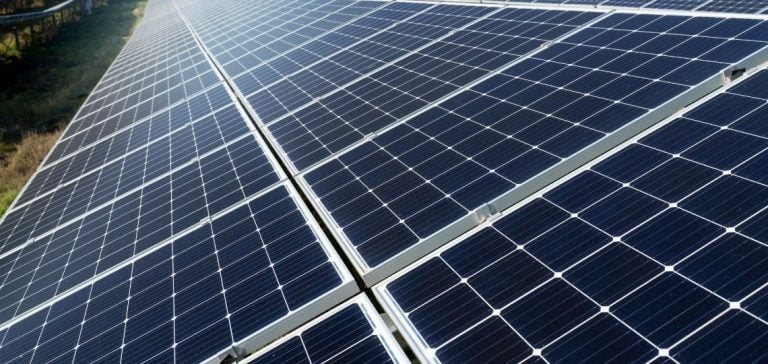Plenitude has officially commenced construction of a new solar plant with an installed capacity of 220 megawatts (MW) in Villarino de los Aires, located in the province of Salamanca, Spain. This project represents one of the largest solar installations in the Castilla y León region and is expected to produce over 400 gigawatt-hours (GWh) of electricity annually.
The plant site will cover approximately 286 hectares and will be connected to the national transmission grid via a 3.2-kilometer underground medium-voltage line at the Villarino de los Aires junction. The facility will be equipped with 365,300 bifacial modules, optimizing solar energy capture. The infrastructure is scheduled for completion by 2025, supported by Sterling & Wilson, one of the world’s leading photovoltaic construction companies, along with several local firms.
Integration and Environmental Protection
To minimize environmental impact, several protective measures have been implemented. These include the conservation and relocation of rural huts located between the solar modules, the preservation of natural water channels crossing the area, and the installation of permeable hunting fences surrounding the plant’s perimeter. Additionally, active coordination with neighboring farmers ensures the project’s compatibility with surrounding land use.
Mariangiola Mollicone, Head of Western Europe Renewables and Managing Director of Plenitude in Spain, emphasized during the cornerstone laying ceremony: “The Villarino project is a virtuous example of integration with the territory. The presence today of all involved actors demonstrates our willingness to continue this collaborative approach in the coming years, in line with our development and growth strategy in the country.”
Plenitude’s Expansion in Spain
With the commencement of work in Villarino de los Aires, Plenitude strengthens its presence in Castilla y León, where it already operates a wind plant with an installed capacity of approximately 13 MW. Currently, Plenitude operates over 440 MW of installed capacity in Spain, distributed across photovoltaic and wind installations in Castilla y León, Galicia, La Rioja, Catalonia, Castilla-La Mancha, and Murcia. Ongoing construction projects totaling around 1 GW are planned in Andalusia (Seville and Granada), Castilla y León (Salamanca), and Extremadura (Badajoz). Concurrently, the company is developing over 2 GW of capacity with new projects at various stages of development.
Plenitude, a company controlled by Eni, is active in more than 15 countries worldwide. Its business model integrates electricity production from renewable sources with over 3 GW of installed capacity, the sale of energy and energy solutions to 10 million European clients, and an extensive network of over 20,000 electric vehicle charging points. By 2027, the company aims to reach 11.5 million clients, more than 8 GW of installed renewable capacity, and 40,000 charging points.
Future Perspectives and Sustainable Development
The launch of the Villarino de los Aires solar plant aligns with Plenitude’s overall strategy to increase its renewable energy production capacity and support the energy transition in Spain and Europe. By investing in large-scale solar infrastructures, the company significantly contributes to the reduction of greenhouse gas emissions and sustainable development.
Plenitude also continues to explore new technologies and partnerships to optimize the efficiency of its installations and maximize clean energy production. The company’s commitment to innovation and local collaboration strengthens its position as a key player in the renewable energy sector.






















